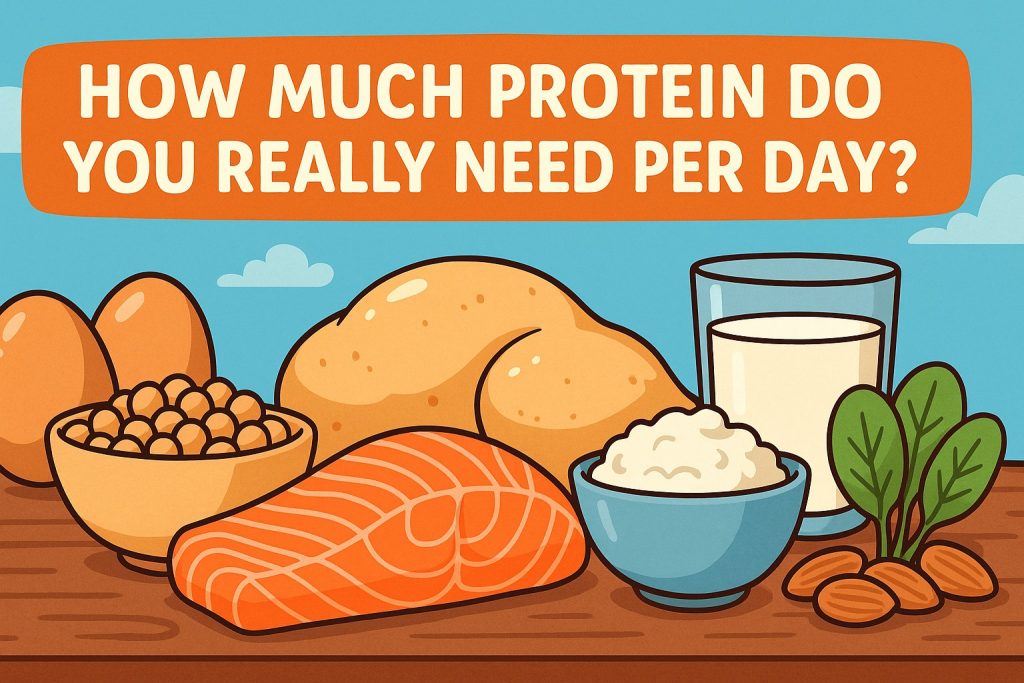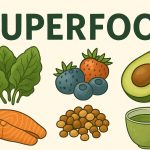Protein is an essential macronutrient that supports muscle repair, enzyme production, immune defense, and hormone synthesis. Despite its importance, many people are unsure how much protein they actually need—or whether they’re getting enough.
General Recommendations for Protein Intake
The standard minimum recommendation for healthy adults is 0.8 grams per kilogram of body weight per day. However, this amount merely prevents deficiency and may not be optimal for most individuals. Actual needs vary significantly based on factors such as:
- Physical activity
- Age
- Body composition goals
- Illness or recovery
For example, a sedentary 70 kg person needs around 56 g per day, while an athlete or older adult might need double that amount.
Optimal Daily Protein Intake by Lifestyle
| Category | Grams per kg body weight | 70 kg person example |
|---|---|---|
| Sedentary adults | 0.8 g | 56 g |
| Regular exercisers | 1.2–1.6 g | 84–112 g |
| Strength trainers & athletes | 1.6–2.2 g | 112–154 g |
| Weight loss or fat loss phase | 1.8–2.4 g | 126–168 g |
| Older adults (50+) | 1.2–2.0 g | 84–140 g |
Higher intakes support muscle preservation, fat metabolism, and overall energy, especially during aging or calorie restriction.
How to Distribute Protein
To maximize muscle protein synthesis and absorption, protein should be evenly spaced throughout the day.
Aim for 20–40 grams per meal, especially post-workout or first thing in the morning.
Best Protein Sources
Animal-based:
- Eggs
- Chicken breast, turkey
- Fish (salmon, sardines)
- Greek yogurt, cottage cheese
- Lean beef
Plant-based:
- Lentils, chickpeas, soy (tofu, tempeh)
- Quinoa
- Chia and flax seeds
- Nuts and nut butters
Combining multiple plant proteins helps ensure a full amino acid profile.
Can You Eat Too Much Protein?
For most healthy people, high-protein diets (up to 2.2 g/kg or more) are safe. The myth that high protein harms kidneys has been debunked—unless you already have kidney disease. However, balance and hydration remain important.
Glossary
- Macronutrient – A type of nutrient the body needs in large amounts (protein, fat, carbs)
- Muscle protein synthesis – The process of building new muscle proteins
- Amino acid – The building blocks of protein, some of which must come from food
- Debunked – Proven false through evidence or research


